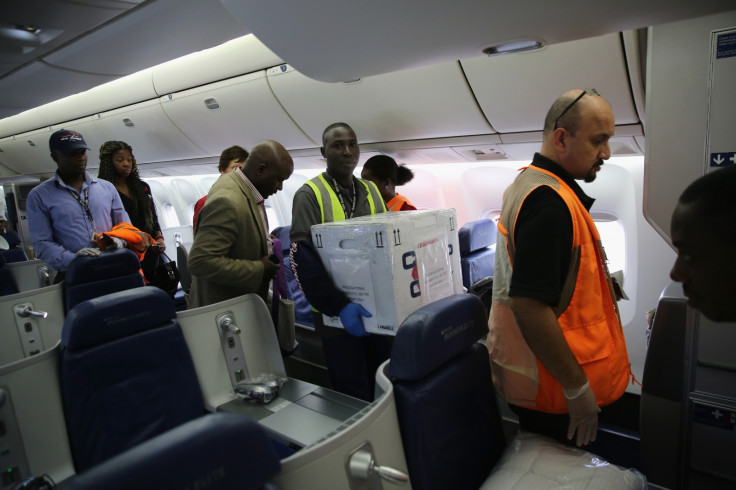Ebola Outbreak: Three African Doctors Receiving Zmapp Drug Show 'Remarkable Signs of Improvement'

Three African doctors receiving the experimental Ebola ZMapp drug are showing "remarkable signs of improvement", according to Liberian officials.
Quoting a head doctor, Information Minister Lewis Brown said the patients were appearing to make good progress after receiving doses of the drug, which appears to have helped two American aid workers who were infected with the virus in late July.
The doses were administered to Zukunis Ireland and Abraham Borbor, both from Liberia, and Aroh Cosmos Izchukwu of Nigeria, as reported by Reuters.
Last week, Liberia's Minister of Foreign Affairs, Augustine Ngufuan, couriered the two boxes of Zmapp on a commercial flight from the US to Monrovia, where it was unloaded at a VIP terminal.
According to the manufacturer of the drug, Mapp Biopharmaceuticals, the current "available supply of ZMapp has been exhausted".
Yet Tolbert Nyenswah, Assistant Minister of Health and Social Welfare, said the drug could be more widely used in Liberia in the future.
"If we can save the doctors here, especially those senior medical doctors that are infected with the virus, then Liberia can be a place to do a mass trial with the drugs," he said.
ZMapp is an experimental biopharmaceutical drug comprising of genetically-engineered antibodies that boost a patient's ability to fight off the Ebola virus.
Professor Charles Arntzen, of Arizona State University, told Euro News that the drug is relatively simple: "It is three antibodies, produced in a tobacco plant, and then we grind up the tobacco plants and purify the antibodies so that they essentially look like antibodies that would come from human serum."
The drug was first tested in humans during the current 2014 West Africa Ebola virus outbreak, which has claimed the lives of 1,229 people, according to the World Health Organization.
Cases across Liberia, Nigeria, Sierra Leone and Guinea have risen to 2,240 and approximately one million people are living in quarantine zones in the four states.
ZMapp only entered animal trials a few months before this year's epidemic. Two American aid workers were the first to receive the drug after they became infected in Liberia.
Their organisation, Samaritan's Purse, managed to acquire the drug by working with Mapp Biopharmaceuticals and the US Food and Drug Administration, which has restrictions on the export of experimental drugs.
The condition of both patients is improving in a facility in Atlanta, but critics have questioned why the drug has not been administered more freely in West Africa.
One week ago, the WHO said experimental, unlicensed drugs and vaccines can ethically be used in the Ebola outbreak in west Africa, but recognised it will take months to manufacture enough of the drug to be administered widely.
© Copyright IBTimes 2025. All rights reserved.






















